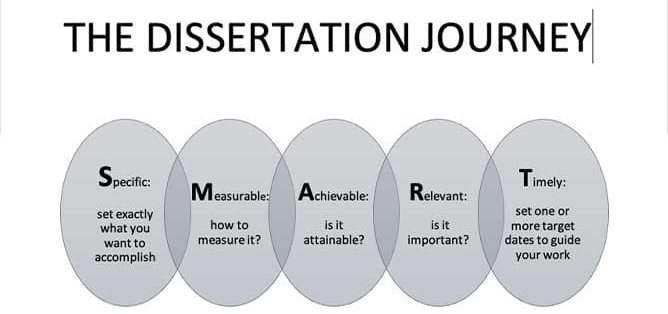
Table of Contents
Embarking on a PhD in Nursing is a monumental journey, one that culminates in the creation of a groundbreaking dissertation. This dissertation serves as a testament to your research prowess, your commitment to advancing the field, and your ability to contribute meaningfully to the world of nursing practice and scholarship. But choosing the right PhD nursing dissertation topic can feel overwhelming.
This comprehensive guide aims to illuminate the path ahead by exploring 20 compelling PhD nursing dissertation topics, each offering a unique lens through which to examine critical issues in contemporary healthcare. These topics are designed to spark your curiosity, inspire innovative research, and empower you to make a lasting impact.
Top 20 PhD Nursing Dissertation Topic Ideas
1. Examining the Impact of Artificial Intelligence and Machine Learning in Nursing Practice: As technology rapidly advances, the role of AI and ML in nursing care is becoming increasingly significant. A PhD nursing dissertation topic in this area could explore the ethical implications of AI-powered decision support systems, the impact of AI on patient outcomes, or the potential for AI to improve nursing workload and efficiency.

2. The Intersection of Nursing and Public Health: Addressing Health Disparities: Health disparities are a persistent challenge in healthcare, and nurses play a crucial role in bridging the gap. A PhD nursing dissertation topic exploring this intersection could delve into the impact of social determinants of health on patient outcomes, the effectiveness of community-based nursing interventions in reducing disparities, or the role of culturally competent care in addressing these issues.
3. Enhancing Patient Safety and Quality of Care through Innovative Nursing Interventions: Patient safety is a top priority in healthcare, and nurses are at the forefront of promoting safe and high-quality care. A PhD nursing dissertation topic could investigate the effectiveness of new interventions like simulation-based training for nurses, the development of advanced patient monitoring systems, or the role of nurse leadership in fostering a culture of safety.
4. The Role of Nurses in Promoting Mental Health and Well-being: Mental health issues are increasingly prevalent, and nurses are often the first point of contact for individuals seeking support. A PhD nursing dissertation topic could explore the development of evidence-based interventions for mental health conditions, the impact of nurse-led mental health initiatives, or the effectiveness of integrated mental health services in primary care settings.
5. The Influence of Nurse Leadership on Organizational Performance and Patient Outcomes: Effective leadership is vital for a high-performing healthcare organization. A PhD nursing dissertation topic could examine the relationship between nurse leadership styles and patient outcomes, the impact of leadership development programs for nurses, or the effectiveness of nurse-led quality improvement initiatives.
6. Exploring the Lived Experiences of Nurses in Diverse Practice Settings: Nurses work in a wide variety of settings, each presenting unique challenges and opportunities. A PhD nursing dissertation topic could examine the lived experiences of nurses in specific settings like critical care, oncology, or rural healthcare, providing valuable insights into the realities of nursing practice and potential areas for improvement.
7. Investigating the Use of Technology in Nursing Education and Training: Technology is transforming the landscape of nursing education. A PhD nursing dissertation topic could explore the effectiveness of virtual reality simulations in nursing education, the use of online learning platforms to enhance clinical skills, or the development of innovative mobile apps for nursing students.

8. The Role of Nurses in End-of-Life Care and Palliative Care: End-of-life care requires specialized skills and a deep understanding of the patient’s needs. A PhD nursing dissertation topic could explore the development of evidence-based interventions for end-of-life care, the role of nurses in providing compassionate care to dying patients, or the impact of palliative care on patient outcomes.
9. Examining the Impact of Nursing Workforce Shortages on Healthcare Systems: Nursing workforce shortages are a global concern, impacting the delivery of care and patient outcomes. A PhD nursing dissertation topic could explore the causes of workforce shortages, the effectiveness of strategies to address these shortages, or the impact of shortages on access to care and healthcare quality.
10. The Role of Nurses in Promoting Health Equity and Social Justice: Nurses are uniquely positioned to advocate for health equity and social justice. A PhD nursing dissertation topic could explore the impact of social determinants of health on health outcomes, the development of interventions to address health inequities, or the role of nurses in promoting social justice through healthcare advocacy.
11. Examining the Impact of Chronic Illness on Patient Outcomes and Quality of Life: Chronic illnesses are a major public health concern, requiring ongoing management and support. A PhD nursing dissertation topic could explore the impact of chronic illnesses on patient outcomes and quality of life, the effectiveness of self-management strategies for chronic conditions, or the role of nurses in providing supportive care to patients with chronic illnesses.
12. The Role of Nurses in Disaster Preparedness and Response: Natural disasters and public health emergencies require a coordinated response from healthcare professionals. A PhD nursing dissertation topic could explore the role of nurses in disaster preparedness and response, the effectiveness of nursing interventions during emergencies, or the development of protocols for managing mass casualty incidents.
13. The Influence of Nursing Culture and Professional Values on Practice: Nursing culture and values shape the way nurses approach their practice. A PhD nursing dissertation topic could explore the impact of nursing culture on patient outcomes, the role of professional values in ethical decision-making, or the development of strategies to foster a culture of excellence in nursing.
14. Investigating the Use of Mindfulness and Meditation in Nursing Practice: Mindfulness and meditation techniques are increasingly being incorporated into healthcare settings. A PhD nursing dissertation topic could explore the impact of mindfulness on nurse well-being, the effectiveness of meditation for managing stress and burnout, or the role of mindfulness in improving patient-nurse communication.

15. The Impact of Nurse Education on Patient Outcomes and Healthcare Quality: The quality of nursing education directly impacts the quality of care delivered to patients. A PhD nursing dissertation topic could explore the effectiveness of different nursing education models, the impact of simulation-based training on clinical competence, or the development of innovative approaches to nursing education.
16. Exploring the Use of Technology in Promoting Patient Engagement and Empowerment: Technology is empowering patients to take a more active role in their healthcare. A PhD nursing dissertation topic could explore the development of patient portals and telehealth applications, the effectiveness of using mobile health technologies to promote patient engagement, or the impact of technology on patient satisfaction and health outcomes.
17. Examining the Role of Nurses in Promoting Health Literacy and Patient Education: Health literacy is crucial for patients to make informed decisions about their health. A PhD nursing dissertation topic could explore the development of effective patient education materials, the role of nurses in promoting health literacy, or the impact of health literacy interventions on patient outcomes.
18. The Impact of Nurse-Led Care Coordination on Patient Outcomes and Healthcare Costs: Care coordination is essential for managing complex patient needs and reducing healthcare costs. A PhD nursing dissertation topic could explore the effectiveness of nurse-led care coordination models, the impact of care coordination on patient outcomes and healthcare costs, or the development of strategies for improving care coordination across different healthcare settings.
19. The Role of Nurses in Promoting Population Health and Preventing Chronic Disease: Nurses are at the forefront of promoting population health and preventing chronic diseases. A PhD nursing dissertation topic could explore the development of community-based interventions for preventing chronic diseases, the effectiveness of nurse-led health promotion programs, or the role of nurses in advocating for policies that promote population health.
20. Examining the Impact of Global Health Initiatives on Nursing Practice and Patient Outcomes: Global health initiatives aim to improve health outcomes around the world. A PhD nursing dissertation topic could explore the role of nurses in implementing global health initiatives, the impact of these initiatives on nursing practice and patient outcomes, or the development of culturally appropriate interventions for addressing global health challenges.

Tips for Choosing the Right PhD Nursing Dissertation Topic
Embarking on a PhD in nursing is a monumental undertaking, demanding years of dedicated study, research, and critical thinking. The culmination of this journey is the dissertation, a substantial piece of original research that establishes your expertise and contributes to the advancement of nursing knowledge. Selecting the right PhD nursing dissertation topic is therefore a crucial first step, one that sets the stage for a successful and fulfilling research experience.
Choosing a PhD nursing dissertation topic is not merely about picking a subject that interests you. It requires a careful and deliberate process that considers multiple factors, including your research interests, available resources, and the current state of the nursing discipline.
1. Passion and Purpose: Aligning Your Research with Your Interests
A PhD nursing dissertation is a significant undertaking, and the journey will be smoother and more rewarding if you are truly passionate about the chosen topic. Reflect on your areas of interest within nursing, whether it be clinical practice, health policy, health disparities, technology integration, or any other field that resonates with you. Consider the following questions:
- What areas of nursing practice do you find most compelling and impactful?
- What clinical or social issues ignite your curiosity and drive you to seek solutions?
- Are there specific patient populations or health challenges you are particularly passionate about addressing?
The answers to these questions will provide valuable insights into your personal research interests and guide you towards a PhD nursing dissertation topic that resonates with your values and aspirations.
2. The Power of Literature: Understanding Existing Knowledge
Before formulating a PhD nursing dissertation topic, it is essential to thoroughly explore the existing body of research in your chosen area. A comprehensive literature review will not only highlight potential research gaps but also inform your understanding of the field’s current priorities and the direction it is heading.
- Identify key journals and databases specific to your area of interest.
- Review recent publications, including systematic reviews and meta-analyses, to understand the current state of knowledge.
- Explore emerging trends and unanswered questions within your chosen area.
- Identify areas where further research is needed to address gaps in knowledge or conflicting findings.
This systematic review process will not only reveal potential PhD nursing dissertation topics but also provide you with a solid foundation upon which to build your research proposal.
3. Feasibility and Resources: Assessing Practical Considerations
While passion and purpose are essential, it’s equally important to consider the practical aspects of conducting research.
- Evaluate the feasibility of your potential PhD nursing dissertation topic.
- Are the necessary resources available to you, including funding, research participants, and data sources?
- Can you conduct the research within the allotted timeframe and with the required expertise?
Consider the following:
- Time constraints: Can you realistically complete the research and write the dissertation within the allotted timeframe?
- Access to data: Do you have access to the necessary data sources, including patient records, surveys, or interviews?
- Ethical considerations: Are there any ethical concerns or potential risks associated with your proposed research?
- Funding opportunities: Are there funding opportunities available to support your research, such as grants or scholarships?
4. The Value of Mentorship: Seeking Guidance and Feedback
Choosing a PhD nursing dissertation topic is not a solitary endeavor. Seek guidance and feedback from your mentors and advisors, who possess a wealth of experience and knowledge in the field.
- Discuss your potential PhD nursing dissertation topics with your advisor and other faculty members.
- Seek their perspectives on the topic’s relevance, feasibility, and potential impact on the field.
- Value their insights and suggestions, as they can provide invaluable guidance and support.
Your mentors can help you refine your research questions, identify appropriate research methodologies, and navigate the complexities of the dissertation process.
5. Navigating the Ethical Landscape: Ensuring Responsible Research
Ethical considerations are paramount in nursing research.

- Before choosing a PhD nursing dissertation topic, carefully evaluate the ethical implications of your proposed research.
- Will it involve human subjects? If so, ensure you obtain informed consent and protect participant confidentiality.
- Consider the potential for harm and mitigate any risks to participants.
- Familiarize yourself with relevant ethical guidelines, such as those established by your institution and the American Nurses Association.
Ethical research practices are crucial for maintaining public trust in the nursing profession and ensuring the well-being of research participants.
6. The Quest for Impact: Identifying Topics with Significance
The goal of a PhD nursing dissertation is not simply to generate knowledge but to make a meaningful contribution to the field.
- Consider the potential impact of your research on nursing practice, health policy, and patient outcomes.
- Choose a PhD nursing dissertation topic that addresses a significant gap in knowledge or offers practical solutions to a real-world problem.
- Ask yourself: how will this research benefit patients, nurses, and the broader health care system?
By focusing on impactful research questions, you can ensure that your dissertation makes a tangible contribution to the advancement of nursing and improves the health and well-being of individuals and communities.
7. Refining Your PhD Nursing Dissertation Topic: A Process of Iteration
Choosing a PhD nursing dissertation topic is an iterative process that may involve several revisions.
- Be open to refining and adjusting your initial ideas as you delve deeper into the literature and discuss your research interests with your advisors.
- Don’t be afraid to explore new avenues and consider alternative research questions.
- Remember, the most important thing is to choose a PhD nursing dissertation topic that is both intellectually stimulating and personally fulfilling.
8. Examples of Promising PhD Nursing Dissertation Topics
Here are a few examples of potential PhD nursing dissertation topics that align with current trends and address significant issues within the nursing profession:
- Impact of technology on nursing practice: Investigate the role of telehealth, wearable technology, and electronic health records in enhancing patient care and improving nurse efficiency.
- Health disparities and access to care: Examine the factors contributing to health disparities among marginalized populations and explore potential interventions to improve their access to quality healthcare.
- The role of nurses in promoting health equity: Analyze the impact of nurse-led interventions on reducing health disparities and promoting social justice within healthcare systems.
- Burnout and stress among nurses: Explore the prevalence and impact of burnout and stress among nurses and develop evidence-based strategies for mitigating these challenges.
- The ethical implications of emerging medical technologies: Examine the ethical dilemmas posed by new technologies, such as gene editing and artificial intelligence, and develop ethical frameworks for their use in nursing practice.

Choosing a PhD nursing dissertation topic is a critical step in your research journey. By considering your passions, the current state of knowledge, feasibility, and potential impact, you can select a topic that will challenge, inspire, and ultimately contribute to the advancement of nursing practice. Embrace this process as an opportunity to explore your interests, expand your knowledge, and make a lasting contribution to the field. The journey may be demanding, but the rewards of completing a PhD in nursing, equipped with the skills and knowledge to address critical healthcare issues, are truly immeasurable.
Moving Forward:
This guide provides a starting point for exploring potential PhD nursing dissertation topics. Engage in further research, consult with your faculty advisor, and engage in dialogue with experts in your field. Remember, your dissertation is an opportunity to make a meaningful contribution to the world of nursing. Choose a topic that excites you, inspires you, and allows you to unleash your full potential as a scholar and a future leader in nursing.
Get Professional Nursing Dissertation Writing Service
Are you looking for help with your PhD nursing dissertation? Then, engage PhD Nurse Writer for professional nursing dissertation writing service. Our writers can assist you with choosing the best PhD nursing dissertation topic, paper writing, proofreading and editing, and plagiarism removal. Besides dissertations, we can also assist you with writing essays, research papers, and case studies.





